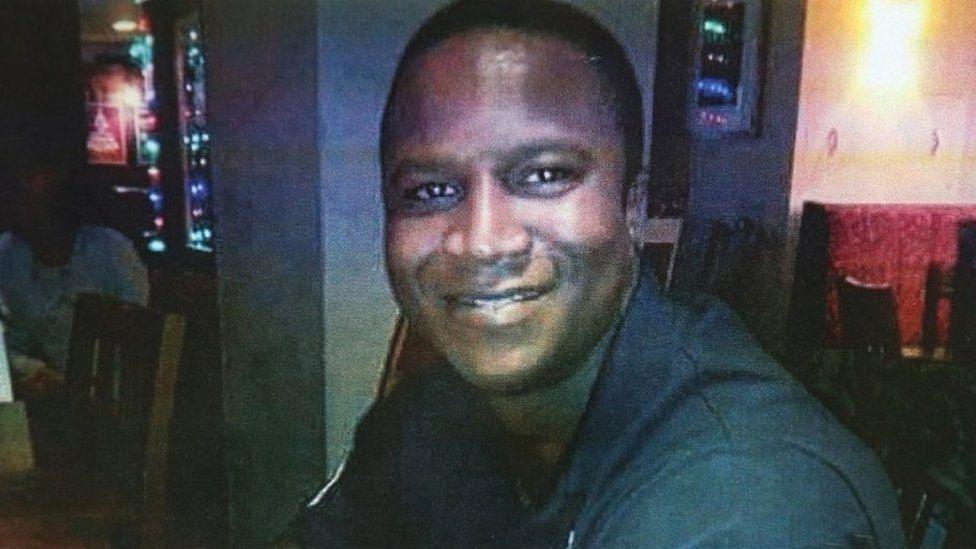Sheku Bayoh: Race did not play a part, says arrest officer
- Published
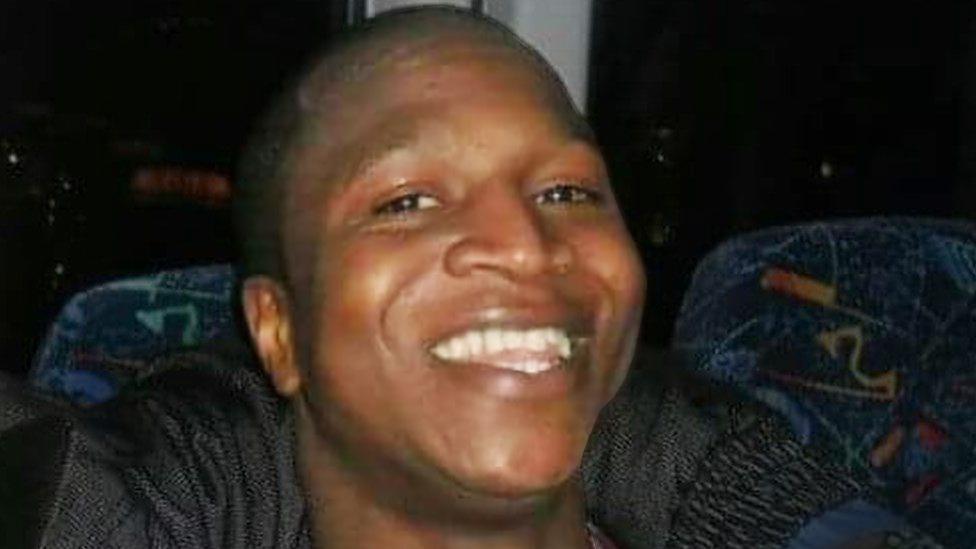
Sheku Bayoh died on 3 May 2015 after he was detained by officers in Kirkcaldy, Fife.
A police officer involved in the restraint of Sheku Bayoh has told a public inquiry race did not play a part in his assessment of the situation.
Mr Bayoh, 31, died after being restrained by officers in Kirkcaldy, Fife, in May 2015.
PC Craig Walker was on duty when he and colleagues responded to reports of a black man with a knife, acting erratically.
He said he thought the man might attack them.
The family of Mr Bayoh, who came to the UK from Sierra Leone as a teenager, have claimed he was treated differently because of the colour of his skin.
The inquiry is examining the immediate circumstances leading to the death of Mr Bayoh, how the police dealt with the aftermath, the following investigation, and whether race was a factor,
PC Walker told the inquiry: "The only factors considered when assessing the risk were the words big, muscular, and carrying a knife. Race did not play a part in my risk assessment."
He told Angela Grahame, senior counsel to the inquiry: "It showed in my mind he was not just carrying a weapon for intimidation, he was using the weapon. He had intent to strike out.
"If they're using it to strike out at other things, then you have got to go under the assumption of they're looking to harm other people.
"Obviously knives are dangerous, you only need one wound and that could be fatal. You have got to be careful with knives."
'Big knife'
PC Walker, 41, said he had considered that it could be a "suicide by cop" scenario as the incident took place near a mental health unit.
He said that scenario was not very common in Scotland, but thought of it because of the "overt nature" of Mr Bayoh's actions.
"He was running about with the big knife and it was generating a lot of calls," the officer said. "That was the only thing. That he wanted police presence there."
Ms Grahame asked him: "Did it have anything to do with the fact the man was black?"
The officer, who has 17 years of service, replied: "No."
Ms Grahame asked: "If the man had been white who had been attacking vehicles with the knife, would you still have had that thought pass through your mind about suicide by cop?"
PC Walker said: "Yeah, anybody can suffer from a psychiatric episode."
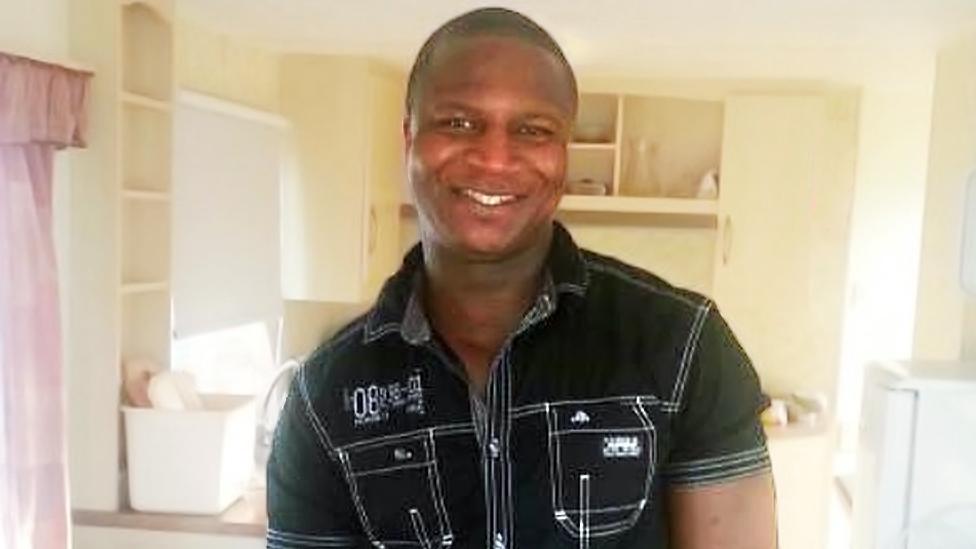
PC Walker and colleague PC Alan Paton were on their way to an alarm activation when the call came through their radio, and they made their way to the scene.
The inquiry heard they had their blue lights on but not their sirens.
When officers arrived, Mr Bayoh was not striking vehicles, appeared not to have a knife and there had not been members of the public nearby, the inquiry was told.
But Mr Walker said: "It makes much more sense to take advantage of the fact he doesn't appear to be in possession of the knife at that point, communicate with him, and to bring him into police custody."
Asked about the risk he considered Mr Bayoh posed, PC Walker said: "He's still a high-risk individual.
"We have no reason to doubt that he's had or still has possession of a knife, just because we can't see it."
Earlier, as Mr Bayoh's family arrived for the hearing in Edinburgh, the family's solicitor Aamer Anwar urged police officers "to do their duty to speak with candour and to tell the whole truth".
He said: "That is what police officers are expected to do in this country."
The inquiry, before Lord Bracadale, continues.
- Published17 May 2022
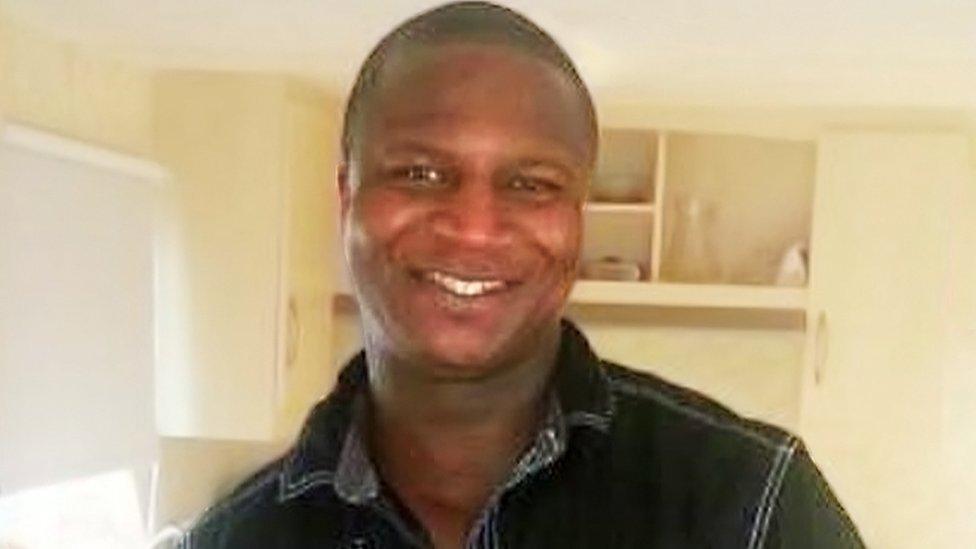
- Published15 May 2022
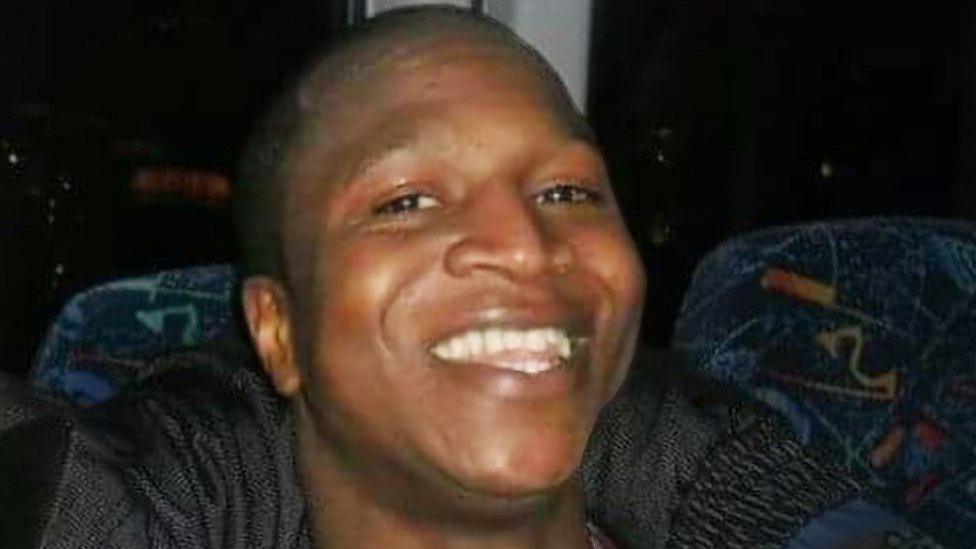
- Published13 May 2022
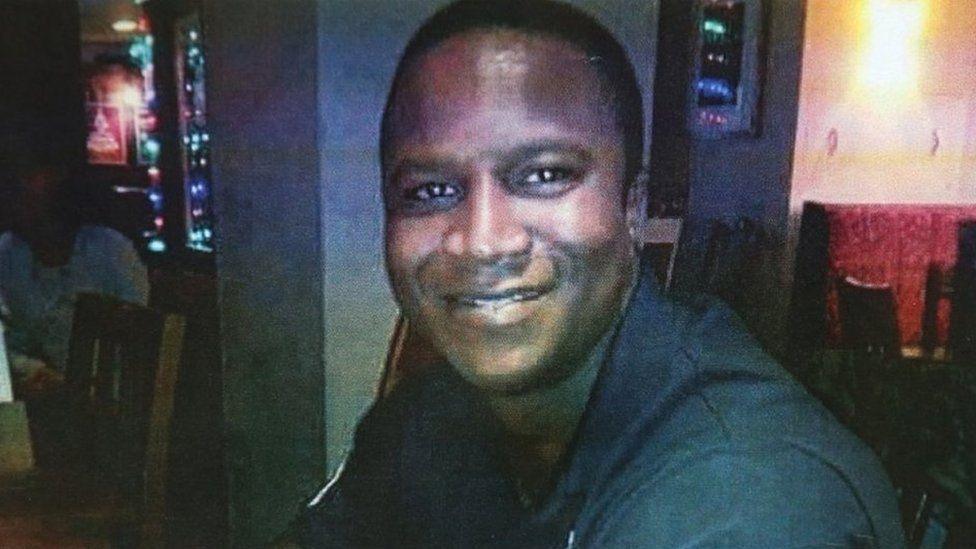
- Published11 May 2022
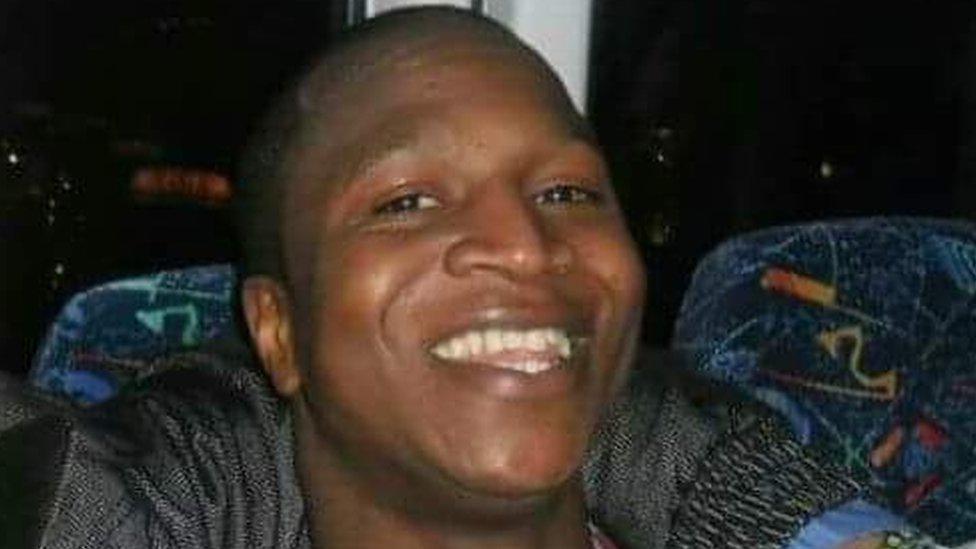
- Published10 May 2022
